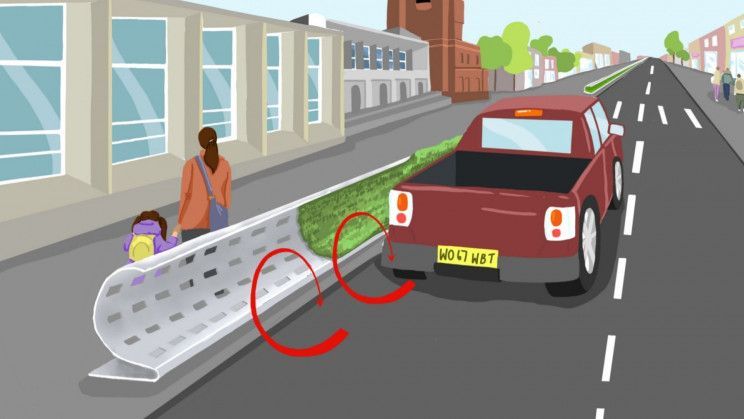
Researchers from Imperial College London have designed a curved barrier that will protect people in the city from air pollution. To develop a barrier that averts air pollution particles away from e.g pedestrians the scientists used airflow modelling techniques (you can find all of the team’s findings in the journal Cities & Health).
Dr. Tilly Collins who is one of the researchers from Imperial’s Center for Environmental Policy came upon the problem of how severe the pollution of the air is while watching her child play sports in a school playground close to a busy London road. She explained in a press statement.
“I thought to myself, what could be done? And done now? So, I started researching the effect of walls along roads. It became evident that along the pedestrian side of these roadside walls, there are vortices where the air quality can actually be even worse as the pollutants get trapped in them.”
Interesting Engineering writes that Dr. Collins together with her colleague Dr. Huw Woodward “explored ideas for urban design that would mitigate the vortex effects and therefore improve air quality for pedestrians.”
The scientists found that curved structures are more effective at reflecting pollutions back towards roads and away from pedestrians.
The barriers will not only protect cities residents, especially children, from toxic fumes and the traffic alone. It will also add roadside greenery to the cities, hopefully reducing air pollution further as well as lighten noise pollution from the traffic.
Picture: Imperial College London via Interesting Engineering




